Last night’s Power Series season nine All-Star Race at Gateway Motorsports Park had the sort of excitement and drama that would make NASCAR jealous.
Of course, NASCAR’s all-star events haven’t always been duds like we’ve seen recently. Years ago, many of those races were classics, and I was there to witness several of them first-hand. When I was growing up, my dad worked for RJ Reynolds, and he got tickets nearly every year to the all-star race, then sponsored by RJR’s Winston cigarette brand.
From the grandstands, I watched late passes for the win by Geoff Bodine in 1994 and Terry Labonte in 1999. I saw Jeff Gordon dominate in the infamous T-Rex car in 1997, then lose the next year when his fuel ran out on the last lap. And I watched a new generation from a famous family emerge when Dale Earnhardt Jr. won in 2000.
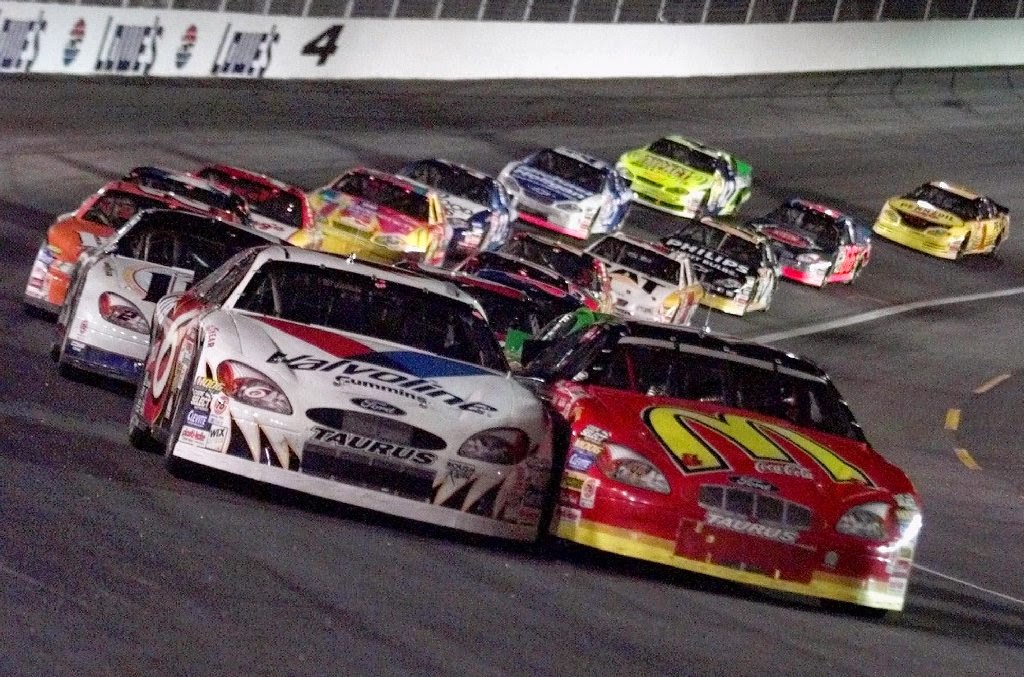
Door-to-door racing in the 2000 edition of The Winston. (AP photo)
In all of those races, the drivers raced their opponents a little closer and made more aggressive moves than they might have in any run-of-the-mill points race. After all, there’s nothing to lose and only a victory to gain.
So entering last night’s race, I decided to adopt a similar mindset and take calculated risks as they presented themselves. As I mentioned in my last post, this race meant something special to me since I could revisit my first online sim racing victory and wrap up a season of supporting the Food Bank of Central & Eastern North Carolina. That was certainly on my mind throughout the night as extra motivation to do well.
I qualified in second and ran there for much of the first 30-lap segment, but in the closing laps, I got pinned on the bottom and was freight trained by a group of cars running a bit higher — the fast line around the flat Gateway track.
At one point, we were three-wide down the backstretch. Normally, I’m the first to back out of those situations, but being the All-Star Race, I made my first of several calculated risks by staying in the gas and driving a bit deeper into turn three than I otherwise might have. I still lost the positions, but it was an all-star worthy moment nonetheless.
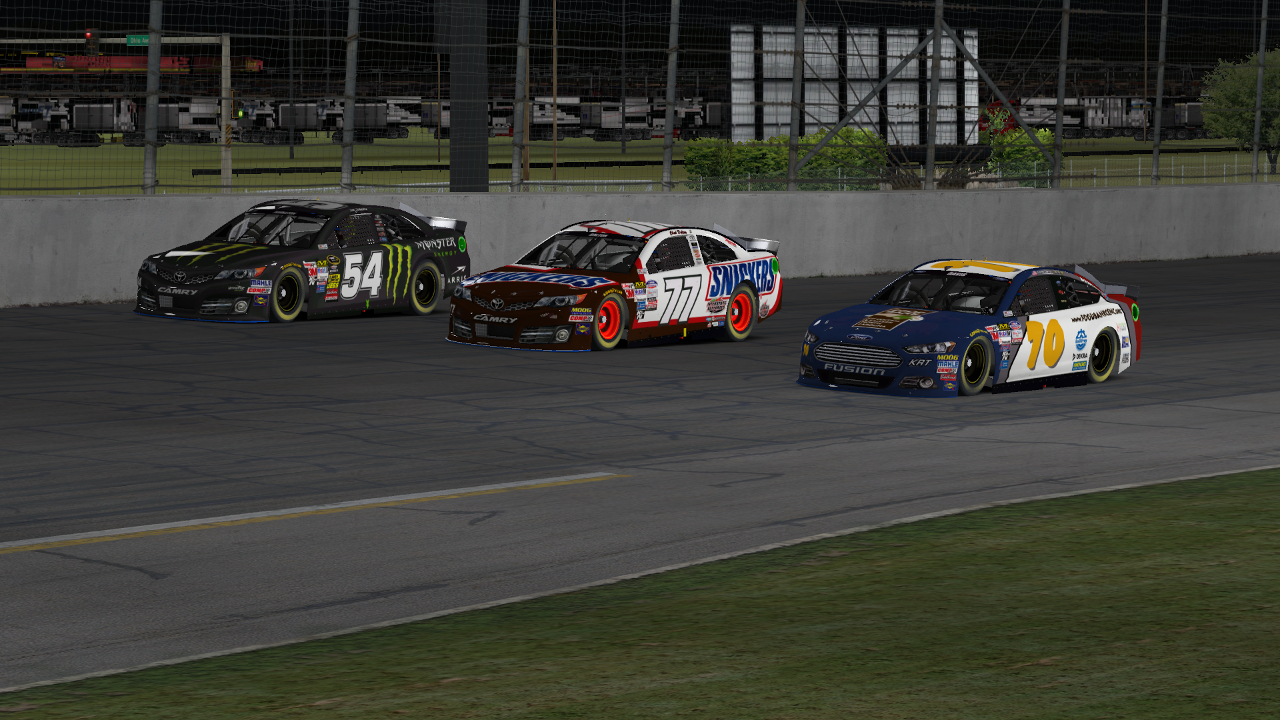
A three-wide battle at 150+ mph with Tim Johnston (#54) and Chad Dalton (#77).
Getting shuffled back wasn’t necessarily a bad thing, though, since I learned some helpful hints about the racing line — namely, that I was pinching the exit of turn two a bit too much — while following the faster guys. It also let me save my tires during the 20-lap second segment and make just a two-tire change at the pit stop.
Those two tires worked pretty well on the restart, and I was able to get a run on leader Chad Dalton. I then took another calculated risk by making an inside run on him entering turn one. He had the preferred outside line, so I knew I’d have to push hard to challenge him. But then: SLAM!
Instead of hugging the bottom like I hoped, my grip-starved tires took me straight up the track and into the side of Chad’s car. That cost him a couple spots, although he was able to retake the lead after I balked the second-place car in turn three.
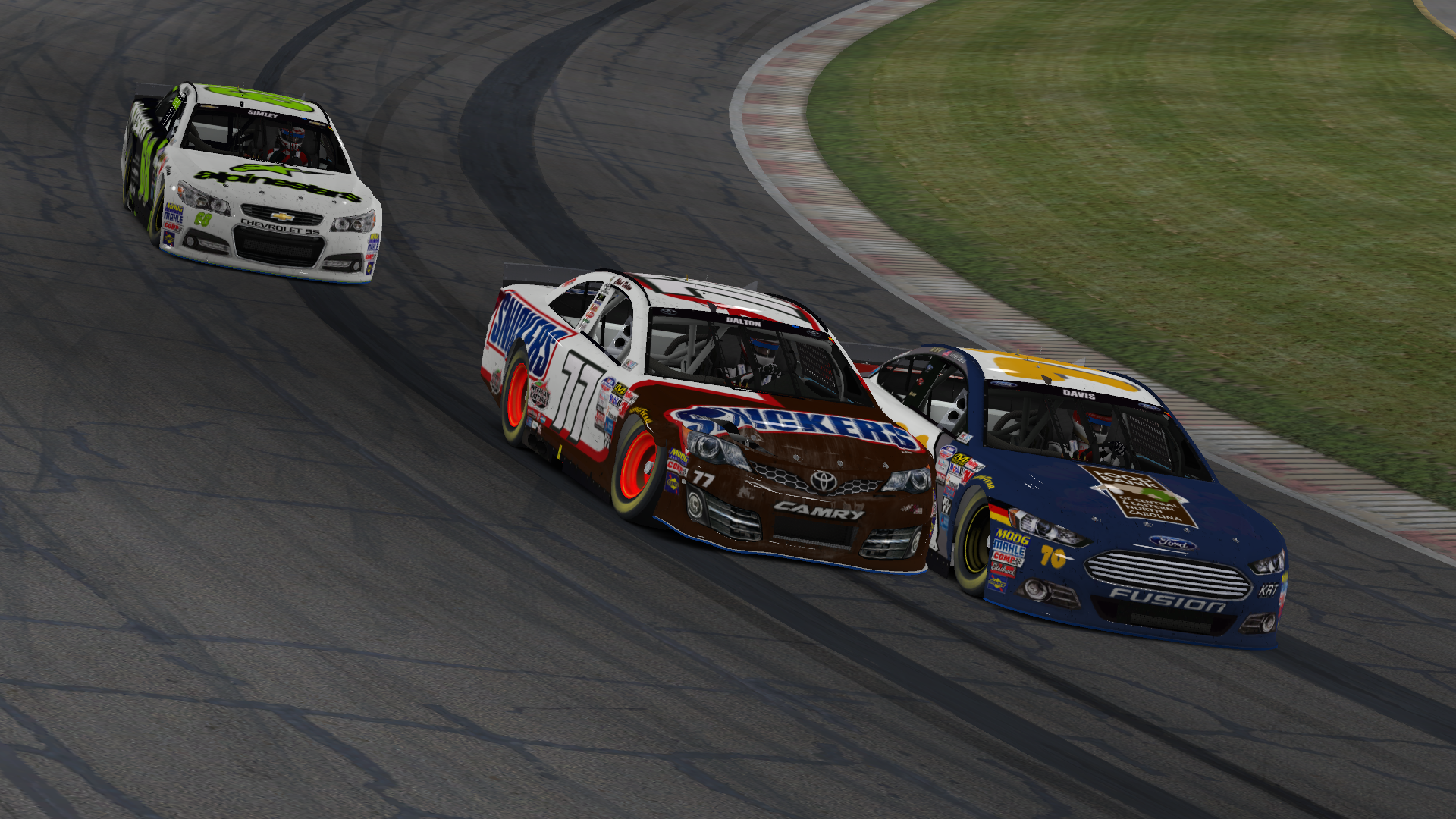
Sliding up the track and into the side of Chad’s car on lap 54.
In that case, the risk didn’t pay off, and I ran into one of the guys who has always raced me cleanly (and vice versa, for the most part).
A caution came out shortly after that, and both Chad and I pitted — him for two tires and me for four. Even that pit stop turned out to be a calculated risk, as those fresh tires cost me valuable track position. I restarted in sixth place, and after another quick caution, I started to make up spots. A few laps later, I was up to third and I set my sights on Brad Collins in second.
With the laps winding down, I took another calculated risk with five to go. Entering turn three, I broke late and dove in low on Brad. Even with fresh tires, I still slid up the hill and into the side of his car. Ultimately, I got the position but also wrinkled the fender — and, perhaps, the trust — of another driver who always runs me close but clean.
After seemingly battering my way through the field, I was in second place for what turned out to be the final restart. I had fresher tires than leader Scott Simley, and when he slid up the track exiting turn two on the restart, I made the pass and, for once, I did it cleanly. I then held off Scott and a hard-charging Chad in the final laps to score the victory.
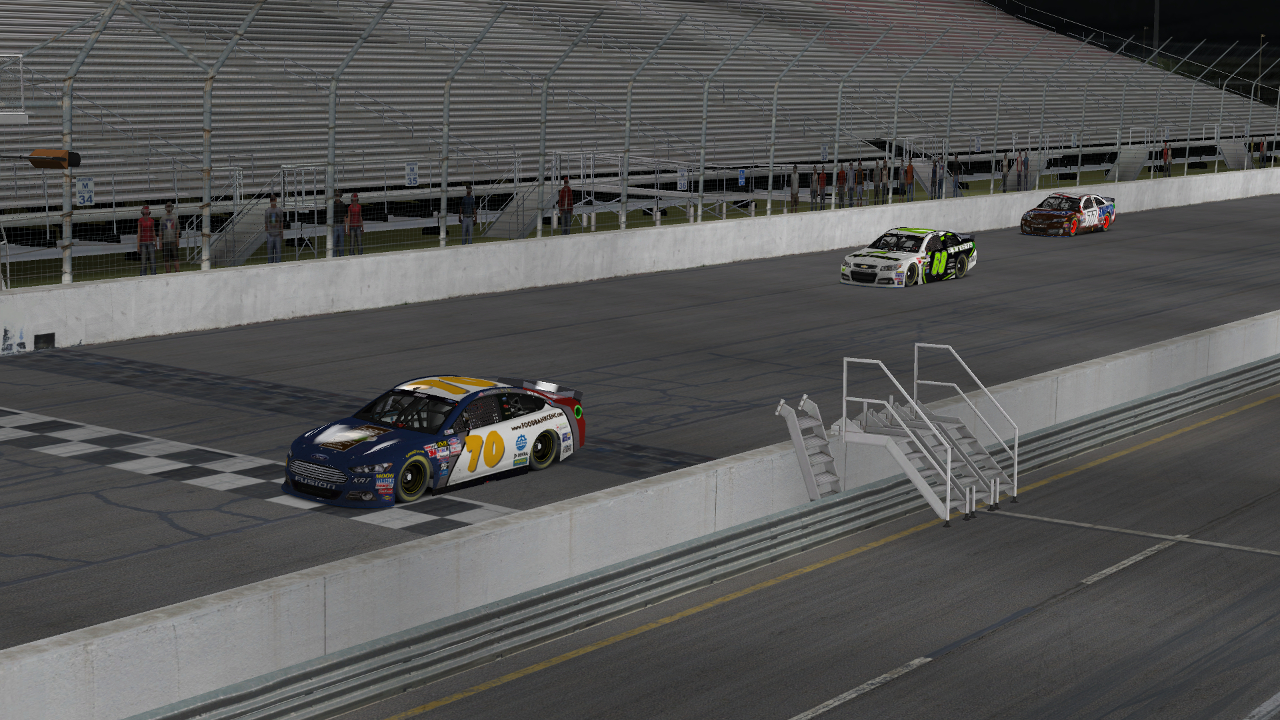
Taking the checkered flag at Gateway!
So was the final reward worth those calculated risks?
I can’t say I’d be thrilled if someone roughed me up and went on to win. But on this particular night, I also can’t say I would’ve been happy with myself for not trying those moves. Certainly I wish they turned out differently, at least as far as the contact goes, but that’s the nature of calculated risks. If consequences weren’t possible, they wouldn’t be called risks.
From a spectator’s point of view, I’m sure this All-Star Race, like some of NASCAR’s classics, was one worth watching, and those calculated risks are a common theme. Although I’ve never been one to emulate his rough-and-tumble nature, Dale Earnhardt — who blocked Kyle Petty and subsequently spun on the final lap of the 1992 all-star race — summarized that pretty well after the race. A reporter asked him “Are those the rules of The Winston?”, and Earnhardt replied “I don’t know about the rules. That’s racing. He was trying to win and I was too.”
With that said, I offer another apology to Chad and Brad. And trust me, if the circumstances are ever reversed and you take the same sort of calculated risks as I did, I will understand completely. To quote another racing cliche, “rubbin’s racin’”, and I’m prepared to take some rubbin’ in return.
Those incidents aside, I’m absolutely thrilled to bring home a win in my throwback paint scheme at a track that’s now even more special to me. The win plus a few laps led added another $30 to my season-long pledges to the Food Bank of Central & Eastern North Carolina, bringing the season total to $257. This afternoon, I made a donation for that amount online.
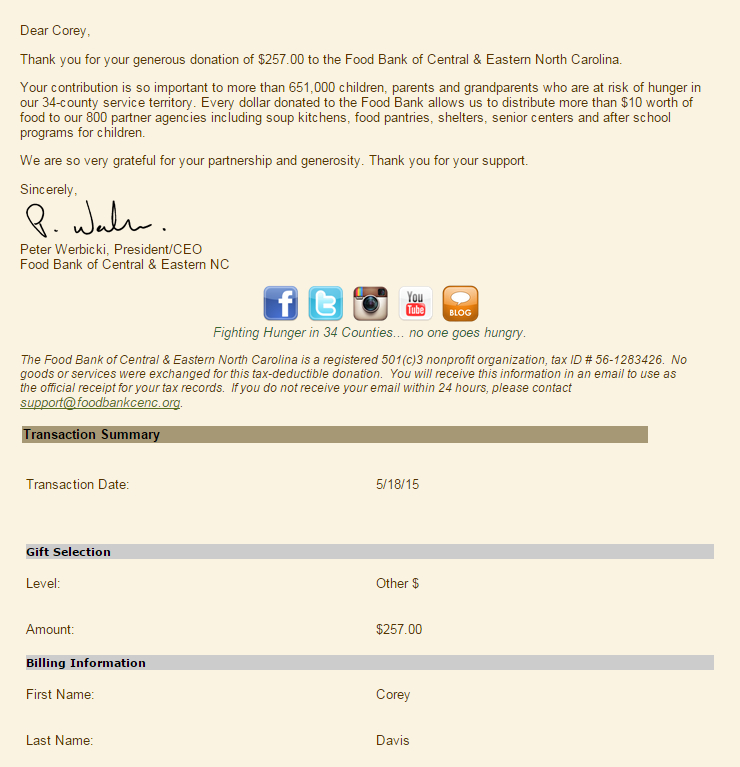
Confirmation of my donation to the Food Bank.
It’s been another great season of racing in the Power Series, and it finished with an exciting all-star night at Gateway. To wrap up this post and this season, I again want to thank the league and series organizers, especially John Hensley, for making it a great place to race every Sunday night.
And thanks also to the competitors, who I know I can race close with every week. I hope one night of risks from an otherwise calculating driver won’t change that going forward as you try to win and I do too!